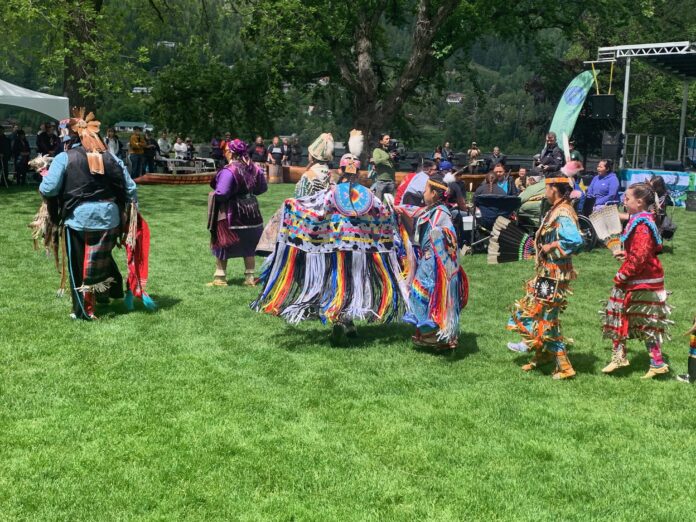The Sinixt Confederacy says it is going back to court against the BC government to defend the rights of its members.
In a news release, the Confederated Tribes of the Colville Reservation, of which the Sinixt are a member, said it has filed two constitutional challenges in response to the way the province has treated them in the wake of a Supreme Court of Canada ruling that the Sinixt are an Aboriginal people of Canada.
“As an Aboriginal people of Canada, we must be consulted on matters relating to our traditional territory, just as all other BC First Nations are,” said Jarred-Michael Erickson, chairman of both the Confederated Tribes and the Sinixt Confederacy.
“After years of working with us collaboratively, the province is now treating the Sinixt as less important than other First Nations. They are refusing to meet with us or engage in dialogue when making decisions about our traditional territory. We want to work with the Province and other First Nations to steward our traditional lands, but if BC is determined to exclude us, we are forced to return to the courts.”
The Sinixt say they filed the lawsuits after being told by the provincial government it would not discuss matters affecting their rights in BC, and instead notify them of intended decisions. The Sinixt say they are now shut out from discussions that regularly occurs between the government and other BC First Nations, as required by law.
The lawsuit argues this policy violates the constitutional protection of Indigenous rights and the Charter of Rights and Freedoms, guaranteeing equality under the law.
In a separate suit, the Sinixt say they have been excluded from new Indigenous education councils that form part of BC school curriculum to ensure Indigenous history and culture are taught accurately.
“This discriminatory conduct means Sinixt perspectives will not be reflected in the curriculum — even in schools operating within Sinixt traditional territory,” they wrote.
The second lawsuit challenges the School Act and a ministerial order defining “First Nation” in a way that excludes the Sinixt. It claims this exclusion also violates equality guarantees under the charter.
Most Sinixt now live in Washington state, but they argued they were driven from their traditional territory in BC by colonization, something Canadian courts have accepted. The Sinixt say what is now the West Kootenay remains their ancestral home.
The Ministry of the Attorney General said it had not been served in either matter, but out of respect for the process, could not comment on matters before the court.
Be the first to know! Don’t miss out on breaking news and daily updates in your area. Sign up to MyNelsonNow News Alerts.





